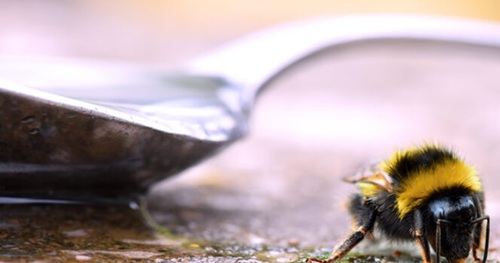
There are countless phobias in the world — some common, others surprisingly unique. Most people have heard of acrophobia (fear of heights), ophidiophobia (fear of snakes), or arachnophobia (fear of spiders). These make sense to most of us — after all, they’re easy to imagine. But then there are fears that others may struggle to understand — like mine.
My greatest fear? Bees. Not just bees — anything that hums and can sting: hornets, wasps, you name it. But bees, in particular, have always made my heart race. I’ve never truly understood why — maybe if I did, I could finally conquer it.
A Childhood Fear That Never Quite Faded
When I was little, my fear was almost comical. If someone had handed me a magic wand and told me I could erase all bees from the planet, I probably would have done it without hesitation. To me, they were just buzzing, unpredictable threats waiting to sting me.
But growing up has a way of changing how we see the world. As I learned more about nature and how fragile life’s balance is, I realized just how wrong I had been. Wiping out bees wouldn’t just remove a “nuisance” — it would destroy life as we know it.
Small Creatures, Enormous Responsibility
Bees are vital to the Earth’s ecosystem. They are among the world’s most important pollinators, responsible for helping countless plants and crops reproduce. In fact, experts from the United Nations Environment Programme estimate that roughly 70% of the crops we depend on for food are pollinated by bees. Without them, our food systems would collapse.
That realization completely changed how I viewed them. I may still panic when one lands on me, but now I know they’re not villains — they’re essential workers keeping the planet alive.
The Crisis Facing Bees
Sadly, these tiny heroes are now in danger. Scientists warn that nearly 40% of bee species could disappear in the coming decades. Pesticides, habitat loss, disease, and climate change have devastated their populations.
If we lose bees, it won’t just be flowers that vanish — entire food chains could unravel. It’s a sobering thought, and one that inspired me to start asking: What can I do to help?
A Spoonful of Sugar — A Simple Act of Kindness
Surprisingly, helping bees doesn’t always require grand gestures. Renowned naturalist Sir David Attenborough once shared a simple tip: if you ever see a bee lying weakly on the ground, it may just be exhausted — not dying.
By mixing two parts sugar with one part water and placing it on a spoon in your yard, you could literally save a life. That tiny bit of energy might be all a bee needs to fly home and continue pollinating.
So if you see someone leave a spoon of sugar outside, don’t laugh — they might be lending a helping hand to the planet.
Building a Haven for Bees
Want to go further? Try creating a bee-friendly space. You don’t need acres of land — even a few pots on a balcony can make a difference.
Plant native wildflowers, herbs, and blossoms that bloom across the seasons. Skip the pesticides — even “mild” ones can harm pollinators. Leave a patch of your garden wild, or build a “bee hotel” using hollow stems or drilled wood to give solitary bees a safe home.
A Changed Mind — And Heart
Do I still get nervous around bees? Absolutely. But now, alongside fear, I feel something else: admiration. I’ve learned that bees are not creatures to be feared — they’re guardians of life. Their survival is tied to ours.
So, the next time you notice a small spoon of sugar in a yard, take it as a quiet reminder — someone out there cares enough to make a difference. Better yet, grab a spoon and join them.
Because sometimes, the simplest gestures carry the power to keep our world blooming. 🌸🐝


